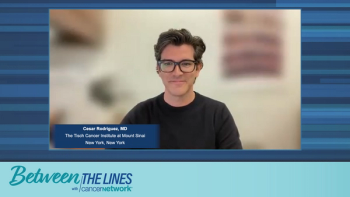
Comprehensive insights on the clinical management of adverse events from talquetamab seen in patients with multiple myeloma, including cytokine release syndrome and infections.

Your AI-Trained Oncology Knowledge Connection!


Comprehensive insights on the clinical management of adverse events from talquetamab seen in patients with multiple myeloma, including cytokine release syndrome and infections.
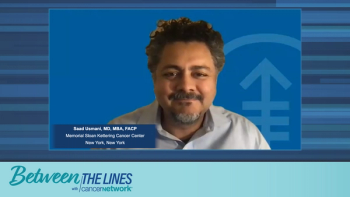
The panel discusses the safety profile of talquetamab for patients with relapsed/refractory multiple myeloma.
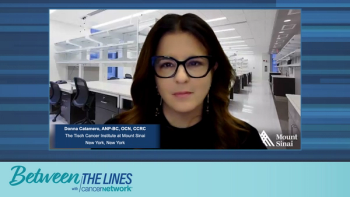
Donna Catamero, ANP-BC, OCN, CCRC, reviews findings from the MonumenTAL-1 study and the panel provides its impressions of the results.

The expert panel provides an overview of relapsed/refractory multiple myeloma, with a focus on current therapeutic options and unmet needs in the treatment space.

A nurse practitioner and two hematologic oncologists outline diagnosis and staging practices for patients with multiple myeloma.
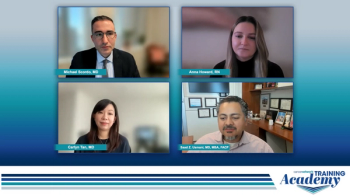
Experts on multiple myeloma provide insights on the management of hematological toxicities associated with bispecific antibodies.

An expert panel offers their initial impressions on the case of a 77-year-old with multiple myeloma treated with a BCMA bispecific antibody who develops neutropenia.

A panel of experts on multiple myeloma discuss the use of IVIG in the management of hypogammaglobulinemia in patients treated with bispecific antibodies.

An expert panel discusses the case of a 49-year-old with relapsed/refractory multiple myeloma treated with a BCMA bispecific antibody who develops adenoviral infection.

Michael Scordo, MD, gives an overview of a study on dysgeusia seen in patients with multiple myeloma following autologous stem cell transplant or treatment with novel agents.

A comprehensive discussion on managing neurotoxicity associated with bispecific antibodies in multiple myeloma.

A panel of experts on multiple myeloma offer insights on the case of a 57-year-old with relapsed/refractory MM treated with an FcRH5 bispecific antibody who develops peripheral neuropathy.

An expert panel discusses the management of dysgeusia associated with bispecific antibodies in treating patients with multiple myeloma.

Experts on multiple myeloma present the case of a 61-year-old with relapsed/refractory multiple myeloma (MM) treated with a BCMA bispecific antibody who develops dysgeusia and offer their initial impressions.
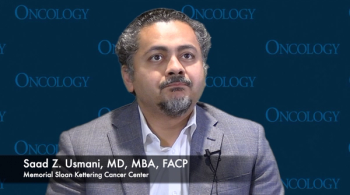
Saad Z. Usmani, MD, MBA, FACP, spoke about key takeaways from the phase 1/2 SWOG 1211 trial and top research presented at ASCO 2022 in multiple myeloma.

Saad Z. Usmani, MD, MBA, FACP, spoke about the safety profile of standard triplet therapy with or without elotuzumab for patients with newly diagnosed, high-risk multiple myeloma in the phase 3 SWOG 1211 trial and how results of this trial may be used in future datasets to inform treatment in this setting.

Saad Z. Usmani, MD, MBA, FACP, discusses the use of lenalidomide, bortezomib, and dexamethasone with or without elotuzumab for newly diagnosed, high-risk multiple myeloma.
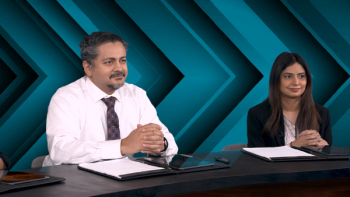
An overview of what’s next, in terms of the use of various frontline treatment regimens, that include novel agents to manage patients with newly diagnosed multiple myeloma.
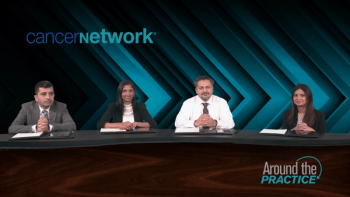
Recommendations regarding best approaches to using novel therapies to treat multiple myeloma based on current drug approvals as well as new therapies in the pipeline.

Treatment options available for an elderly man with multiple myeloma upon first relapse.
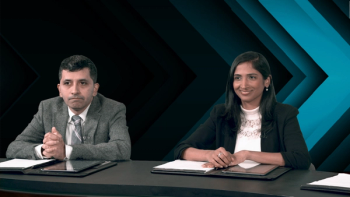
What needs to be investigated further before adopting MRD assessments for multiple myeloma into routine clinical practice.

Considerations for selecting between a conventional front-line triplet regimen to manage a patient with high-risk multiple myeloma who is ineligible for transplant vs a new quadruplet regimen, as demonstrated in recent clinical trial data.

Various considerations affect choice of first-line therapy for a patient with newly diagnosed multiple myeloma who is ineligible for transplant.

An overview of treatment regimens available for patients with newly diagnosed multiple myeloma who are ineligible for stem cell transplantation.

The current rationale for managing a patient with newly diagnosed multiple myeloma with consolidation therapy post-transplant.
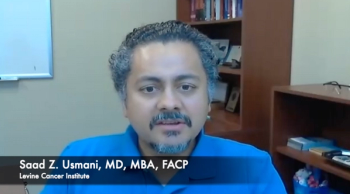
Usmani detailed the primary results from CARTITUDE-1, focusing on overall response rate and stringent complete responses.
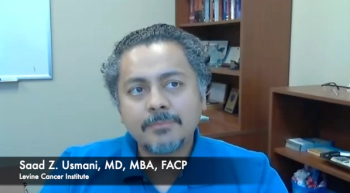
Usmani highlighted the FORTE study as one of the trials investigating the high-risk cohort of patients.
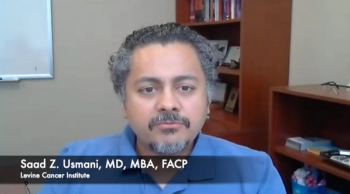
Usmani discussed the common adverse events observed from CARTITUDE-1, including hematologic events and cytokine release syndrome.
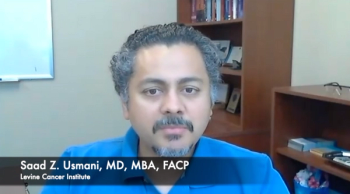
Usmani noted the strong overall response and stringent complete response rates observed with ciltacabtagene autoleucel for multiple myeloma at a median follow-up of 18 months.